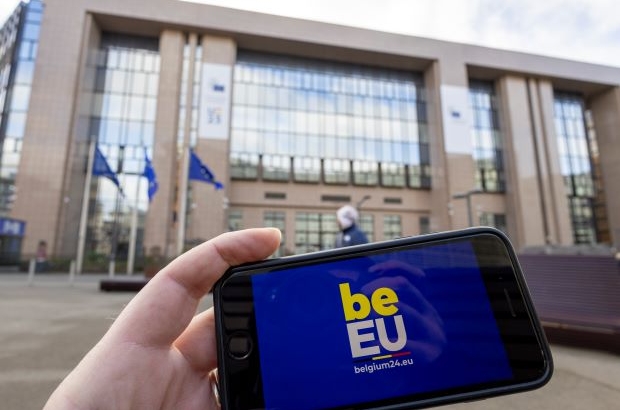- Daily & Weekly newsletters
- Buy & download The Bulletin
- Comment on our articles
Belgium takes over the EU Council Presidency on 1 January
After two years of careful preparations, Belgium takes over the helm of the biannual presidency of the Council of the European Union on 1 January.
Its six-month stint overseeing the European agenda comes at a critical time for the small nation as well as the 26 other member states.
With elections looming for Belgium and the EU on 9 June, the pressure is on the final presiding country to wrap up some 150 files remaining on the table. With the European Parliament’s last plenary session scheduled for the end of April, they will need to be legally locked-in before spring.
What’s on the agenda
Key legislation includes the new migration pact, new rules governing the budgetary discipline of EU member states and the mid-term review of the 2021-2027 EU budget, combined with major aid to Ukraine. Another important topic is the net-zero emissions industry that aims to promote clean technologies across Europe.
Belgium will also assist in setting the EU’s political priorities for the next five years. The enlargement of the union with the planned accession of Ukraine and Moldova will be at the forefront of the agenda.
Focus on Belgium
Belgium’s famed expertise in securing compromises will certainly be called on over the next few months.
Foreign minister Hadja Lahbib (MR) acknowledged Belgium’s secret weapon at a presentation of the presidency agenda in December. “Compromis a la belge, that is our secret,” she said with a smile.
Concretely, the six priority themes Belgium has chosen are: the rule of law, competitiveness, ecological transition, the social programme, asylum and migration and foreign policy.
Its slogan for the next six months reflects these ambitions: "Protecting citizens, strengthening the economy, preparing for the future."
But Belgium’s own local, regional and federal elections in June could prove to be a major distraction to its 13th time assuming the presidency.
The risk of a right-wing surge in the polls in the north of the country could steal some of the limelight from Belgium’s turn on the strategic international stage. Success for the Vlaams Belang party, which calls for Flemish independence, would make forming a new government even trickier for the notoriously complex multi-layered country.
Cooperation called for
In his new year speech, Belgian prime minister Alexander De Croo (N-VA) underlined “cooperation” as being key for the country’s future. He said he was not in favour of state reform that would give more power to Flanders, and called for better cooperation with francophone parties.
Collaboration will also be crucial for Belgium in its necessary dealings with Hungary over the next six months. The Eurosceptic country takes over the EU Council presidency in the second half of 2024, thereby adding to the pressure on Belgium to complete the legislative cycle before the elections.
An additional challenge is that due to Belgium’s linguistic divide, some Council meetings will be chaired by regional as well as federal ministers. The chief diplomat in charge, though, is permanent representative to the EU, Willem van de Voorde, aided by deputy permanent representative Pierre Cartuyvels.
Although Belgium enjoys a good and positive reputation with the EU, it will be sorely hoping that tensions at home don’t mar its next six months in the European hot seat.
Photo: ©Nicolas Maeterlinck/Belga

















